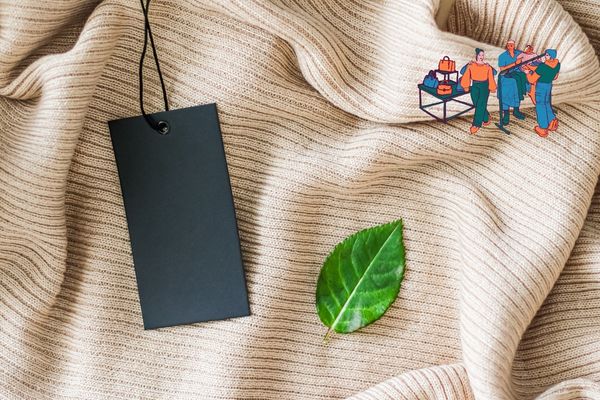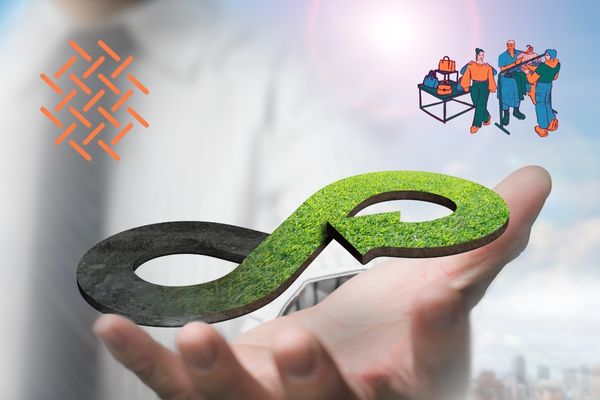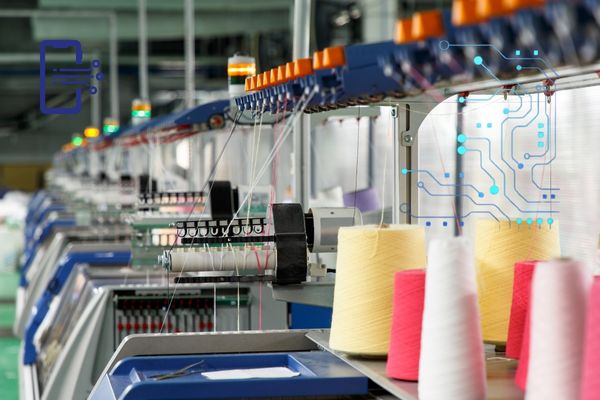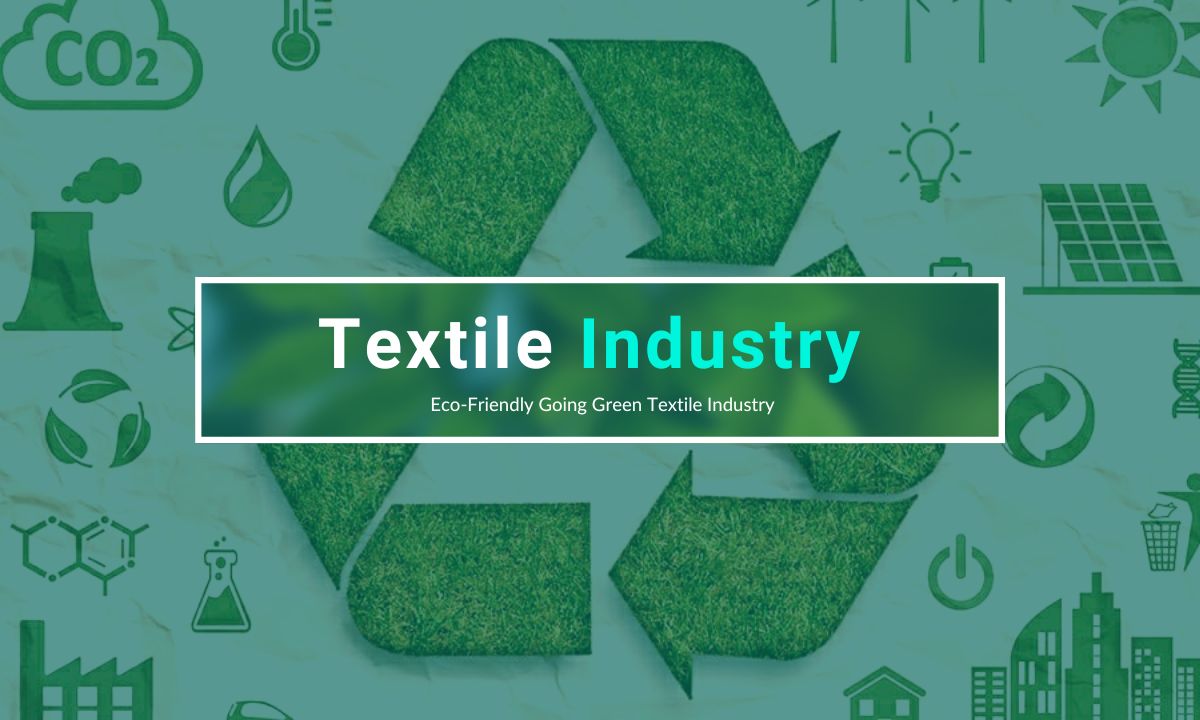The textile industry has long been one of the largest contributors to global pollution. However, the industry is making significant strides toward eco-friendliness and sustainability. Here are some of how the textile industry is embracing eco-friendly practices.
Table of Contents
i. Collaborating with Sustainable Fashion Brands
The textile industry is collaborating with sustainable fashion brands to promote eco-friendly practices. This collaboration is helping to spread awareness about sustainability issues. And by normalizing sustainable production and products, they can help change the bigger picture.

On that note, have you been wishing to go on a mindful shopping spree lately but just don’t have the time? We have a solution for you. At Studyfy, you can get all types of writing help. You can buy admission essay services or get a research paper crafted by a professional writer. Invest in your time today.
Now back to the point. Some textile companies are partnering with sustainable fashion brands. They do this to create eco-friendly collections made from sustainable materials. Collaborations with eco brands advocate sustainability from production to consumption.
ii. Adopting Circular Economy Principles in Textile
The textile industry is trying to become more eco-friendly by integrating principles from a “circular economy” standpoint. The “textile circular economy” concept is rising in popularity within the textile sector and is already being adopted by various groups.

This approach involves creating products that are designed to be recycled. The products are reused or repurposed at the end of their life cycle. By adopting a circular economy model, the textile industry can reduce waste.
On the other hand, some companies are offering take-back programs for their products. This allows customers to return items at the end of their life cycle so they can be repurposed.
iii. Using Biodegradable Textile Materials
Textile companies are also incorporating biodegradable materials such as lyocell and viscose. Biodegradable sources are much better for the environment. Biodegradable materials also have a lower carbon footprint.

Lyocell, for example, is made from wood pulp. Lycoll is easier to produce than cotton. Its biodegradable characteristic ensures it breaks down naturally over time. Similarly, viscose is made from cellulose and is biodegradable and compostable.
iv. Implementing Sustainable Supply Chains
Companies work with suppliers who follow ethical and sustainable practices. This means textile sourcing materials from ethical suppliers such as fiber, fabric or clothing. The companies also promote fair labor practices.

For example, some companies are partnering with cotton fiber suppliers who use organic farming practices to grow cotton. This helps them reduce their need for pesticides. Other companies are working with suppliers who follow ethical labor practices. These suppliers pay their workers’ fair wages. This helps to support sustainable textile communities and reduce social and environmental injustices.
v. Reducing Water and Energy Consumption
It’s good news to know that the textile sector is trying to reduce the consumption of both energy and water. The manufacturing process requires significant amounts of water and energy. The industry is finding ways to minimize its impact.

One way they are doing this is by using more advanced machinery that needs less work to run. Companies are also optimizing their production processes. This reduces the amount of water needed in the manufacturing process. Water recycling systems are being implemented to minimize water usage and reduce waste.
vi. Supporting Fair Trade and Ethical Practices
Companies are starting to prioritize fair trade and ethical practices. This means making sure that the employees in the supply chain are dealt with fairly. The company also sees to it that they are paid livable wages and work in safe conditions. It also means avoiding the use of exploitative labor practices. This also includes boycotting child labor and forced labor.
Many textile companies are now partnering with organizations to certify that their products are ethical. This helps to support sustainable communities and reduce social and environmental injustices.
vii. Innovative Textile Technologies
The textile industry is also embracing innovative technologies to reduce its environmental impact. For example, some brands/groups are pioneering 3D printing technology to produce garments. This can significantly reduce the amount of waste generated in the textile manufacturing process.

Some other companies are shifting to using biodegradable materials. They’re shifting to using materials that can fade/break away naturally after use instead of materials like plastic. On the other hand, there are even some companies that are taking advantage of the transparency that blockchain technology offers. Blockchain technology helps increase transparency in companies’ supply chains. This allows consumers to track the origins and journey of their products.
viii. Education and Awareness
Finally, education and awareness are crucial for achieving sustainability in the textile industry. Many companies are investing in education and training programs for their employees. This helps to promote sustainability practices. Consumers are also being educated about the importance of sustainability.
By being pushed to awareness, they are learning how they play a role in the consumer’s cycle. They are encouraged to reduce their negative impact on the environment. The textile industry is not only making changes within its operations. They are working to shift the broader cultural and societal norms towards sustainability.
Final Thoughts

It’s important to note that “going green” is a way to market a product nowadays. It’s important to be aware that many companies might advertise their products as “ethical” or “vegan,” but that might not always be the case. In truth, it’s difficult to truly know which ones are authentic.
This should not be taken as a sign of discouragement. You should try your best to be mindful about where you buy clothes. It serves as a simple reminder. Supporting small businesses is a far better approach.

Mahedi Hasan working as an Executive (Fabric Marketing) at Pengnuo Group. Graduated with B.Sc. in Textile Engineering. Before was a Top Rated content writer at Upwork, and Level 02 Seller at Fiverr, Level 02 Publisher at Ezoic. Very passionate about content writing, SEO practice, and fashion website designing. Highly Experienced fashion writer for the last 4+ years. Have extensive 7 years of experience in the wholesale clothing business.
